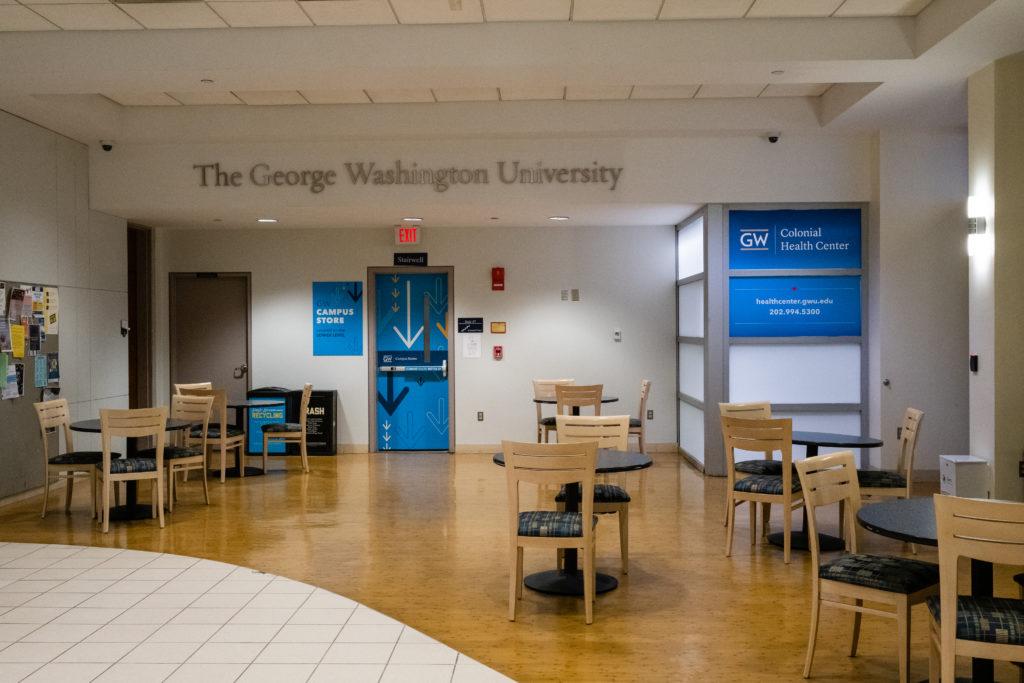Senior Sydney Daniello said she missed a week of classes before the transition to online courses to protect her vulnerable immune system from the novel coronavirus.
Daniello, a psychology major who has Crohn’s disease and is immunocompromised, said her professors allowed her to stay home from class to reduce her contact with other people and lessen her chances of being exposed to COVID-19. If she caught the virus, Daniello said her chronic condition would increase the risk for developing severe complications like difficulty breathing.
“I’m definitely somebody who has existing anxiety, so all of this is difficult,” Daniello said. “I’ve had to be so isolated, it definitely puts a strain on feeling alone and feeling lonely through all of this.”
About 80 percent of individuals infected with COVID-19 present mild symptoms, like a fever or dry cough, but people with underlying medical conditions like Daniello may develop a more serious illness from COVID-19. In interviews, six students with chronic illnesses said they have strictly adhered to public health guidelines to protect themselves, adding that healthy people should practice good hygiene and avoid in-person social interactions to slow the spread of the disease.
Daniello said she wishes young people without chronic illnesses understood the “gravity” of COVID-19 for immunocompromised individuals and adhered more closely to public health protocols, like social distancing. She said people who still frequent bars and nightclubs or hoard resources, like gloves and disinfectants, heighten the anxiety of people with chronic illnesses.
“Having all of this extra stuff to deal with and then having to deal with other people just being irresponsible puts so much strain on the weakest members of the population,” Daniello said.
First-year mechanical and aerospace engineering graduate student Siqi Chen, who experiences chronic inflammation and is being monitored for brain tumors and precancerous cells, said she has felt symptoms like chest pain and shortness of breath. Chen said she tested negative for COVID-19.
Chen said she called the Colonial Health Center earlier this month when she first started experiencing symptoms, but a staff member advised her to continue attending classes.
CHC staff announced March 13 that they are following the Centers for Disease Control’s guidelines to detect COVID-19 symptoms.
She said she did not go to classes and called the health center a second time asking for prescription medications to alleviate her symptoms, which she ultimately received after visiting the CHC. Chen said she felt the center’s staff should have taken her symptoms more seriously because she is more likely to suffer severe complications from COVID-19.
“Of course it’s possible that I don’t have the disease, I have something else, but someone with the same symptoms might have it,” Chen said.
CHC staff is shifting operations to care for only urgent and sick patients and emergency mental health consultations during business hours in accordance with D.C. health department guidelines. Officials also canceled regularly scheduled counseling appointments and closed the Mount Vernon Campus health center for the rest of the semester.
Freshman business and international affairs major Annik Brar, who has Type I Diabetes, said the COVID-19 pandemic has been “worrisome” for her because medical supplies like insulin pumps and alcohol wipes could become increasingly scarce. She said she is currently rationing her supply of alcohol wipes, which she uses when changing her insulin pumps.
The U.S. Food and Drug Administration announced in February that COVID-19 will “likely” impact the medical supply chain and could potentially pose “disruptions” to supply or shortages of pharmaceutical drugs and medical devices.
“It has been extremely stressful trying to balance classes and make sure that I’m not over exposing myself to certain infections,” Brar said.
Freshman and public health and human services major Dasha Boswell – who experiences ankylosing spondylitis, which fuses together small bones in the spine – said she is currently social distancing in her home in Westchester County, New York, where there are 4,691 reported COVID-19 cases as of March 25.
Boswell said she had to ask her sister not to volunteer in “locked-down” areas of New York City to avoid the possibility of unwittingly infecting her with the virus. She said she has experienced “heightened anxiety” as a result of the pandemic and “intense paranoia” when she goes out in public because she feels that people are maintaining their normal routine instead of social distancing.
“I wish people would take social distancing a bit seriously and consider that, while it doesn’t affect them, they could be highly contagious and infect so many other people,” Boswell said.
Freshman and photojournalism major Madi Girault – who experiences chronic pain, hypothyroidism, asthma and polycystic ovary syndrome – said she and her parents began planning how she would protect herself against COVID-19 as soon as cases were confirmed in the United States in January. She said she has been in frequent contact with her health care provider at her home in Texas and has been trying to limit her contact with others.
Girault said she wished that officials were more “transparent” about how GW was handling COVID-19. She said lacking details about move-out logistics augmented her existing stress about her health.
Administrators closed residence halls for the rest of the semester last week. Students previously approved for on-campus housing through April 5 will receive an email containing additional information for “extraordinary circumstances” that may prevent them from leaving campus.
University President Thomas LeBlanc said officials are working on a plan to allow students to retrieve their belongings “sometime after April 5.”
“There was just so much vagueness and uncertainty from everyone that made everything so much more stressful,” she said.




